Lunes
Eventos economicos
No hay indicadores el Lunes.
Entre los mas importantes de la semana tenemos el indice del optimismo de los pequenios negocios, actividad economica de Chicago el Martes, inflacion en Atlanta y el presupuesto del Tesoro el Miercoles; comercio internacional, seguros de desempleo, costo y productividad y el indice del confort del consumidor el Jueves; manufactura en New York, precios de los importadoresy exportadores, produccion industrial y comercio mayorista el Viernes.
Richard Fisher Speaks
3:00 AM ET
NFIB Small Business Optimism Index
7:30 AM ET
ICSC-Goldman Store Sales
7:45 AM ET
Chicago Fed National Activity Index
8:30 AM ET
Redbook
8:55 AM ET
4-Week Bill Announcement
11:00 AM ET
3-Month Bill Auction
11:30 AM ET
6-Month Bill Auction
11:30 AM ET
Narayana Kocherlakota Speaks
1:00 PM ET
3-Yr Note Auction
1:00 PM ET
Dennis Lockhart Speaks
1:50 PM ET
Bank Reserve Settlement
MBA Purchase Applications
7:00 AM ET
Atlanta Fed Business Inflation Expectations
10:00 AM ET
4-Week Bill Auction
11:30 AM ET
52-Week Bill Auction
11:30 AM ET
10-Yr Note Auction
1:00 PM ET
Treasury Budget
2:00 PM ET
Ben Bernanke Speaks
7:00 PM ET
Weekly Bill Settlement
52-Week Bill Settlement
International Trade
8:30 AM ET
Jobless Claims
8:30 AM ET
Productivity and Costs
8:30 AM ET
Charles Plosser Speaks
9:00 AM ET
Bloomberg Consumer Comfort Index
9:45 AM ET
EIA Natural Gas Report
10:30 AM ET
EIA Petroleum Status Report
11:00 AM ET
3-Month Bill Announcement
11:00 AM ET
6-Month Bill Announcement
11:00 AM ET
10-Yr TIPS Announcement
11:00 AM ET
30-Yr Bond Auction
1:00 PM ET
Fed Balance Sheet
4:30 PM ET
Money Supply
4:30 PM ET
3-Yr Note Settlement
10-Yr Note Settlement
30-Yr Bond Settlement
Empire State Mfg Survey
8:30 AM ET
Import and Export Prices
8:30 AM ET
Industrial Production
9:15 AM ET
Wholesale Trade
10:00 AM ET
11/11/13 Markets abiertos, banca cerrada por Veteran's Day
Re: 11/11/13 Markets abiertos, banca cerrada por Veteran's D
Asi quedaron los futures
Futures5:48 PM EST 11/08/2013 last change % chg
Crude Oil 94.35 0.15 0.16%
Brent Crude 105.04 1.44 1.39%
Gold 1289.0 -19.5 -1.49%
Silver 21.500 -0.157 -0.72%
E-mini DJIA 15705 138 0.89%
E-mini S&P 500 1766.75 21.50 1.23%
y las monedas
5:05 PM EST 11/08/2013 last(mid) change
Euro (EUR/USD) 1.3367 -0.0053
Yen (USD/JPY) 99.08 1.00
Pound (GBP/USD) 1.6021 -0.0074
Australia $ (AUD/USD) 0.9386 -0.0069
Swiss Franc (USD/CHF) 0.9213 0.0054
WSJ Dollar Index 73.41 0.43
Futures5:48 PM EST 11/08/2013 last change % chg
Crude Oil 94.35 0.15 0.16%
Brent Crude 105.04 1.44 1.39%
Gold 1289.0 -19.5 -1.49%
Silver 21.500 -0.157 -0.72%
E-mini DJIA 15705 138 0.89%
E-mini S&P 500 1766.75 21.50 1.23%
y las monedas
5:05 PM EST 11/08/2013 last(mid) change
Euro (EUR/USD) 1.3367 -0.0053
Yen (USD/JPY) 99.08 1.00
Pound (GBP/USD) 1.6021 -0.0074
Australia $ (AUD/USD) 0.9386 -0.0069
Swiss Franc (USD/CHF) 0.9213 0.0054
WSJ Dollar Index 73.41 0.43
- admin
- Site Admin
- Mensajes: 165580
- Registrado: Mié Abr 21, 2010 9:02 pm
Re: 11/11/13 Markets abiertos, banca cerrada por Veteran's D
No se llego a un acuerdo nuclear con Iran.
Alibaba creara un Black Friday (Viernes negro - dia de ofertas en las tiendas) en China.
Alibaba creara un Black Friday (Viernes negro - dia de ofertas en las tiendas) en China.
- admin
- Site Admin
- Mensajes: 165580
- Registrado: Mié Abr 21, 2010 9:02 pm
Re: 11/11/13 Markets abiertos, banca cerrada por Veteran's D
AAPl anuncia que esta creando una pantalla curva, mas grande con sensores mejorados al tacto que diferenciara las funciones de acuerdo a la presion que se ponga al tocarlos.
- admin
- Site Admin
- Mensajes: 165580
- Registrado: Mié Abr 21, 2010 9:02 pm
Re: 11/11/13 Markets abiertos, banca cerrada por Veteran's D
OSX buscara proteccion de bancarrota (empresa de Bautista)
- admin
- Site Admin
- Mensajes: 165580
- Registrado: Mié Abr 21, 2010 9:02 pm
- admin
- Site Admin
- Mensajes: 165580
- Registrado: Mié Abr 21, 2010 9:02 pm
Re: 11/11/13 Markets abiertos, banca cerrada por Veteran's D
Los graficos del dia, 
.

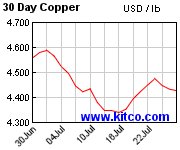
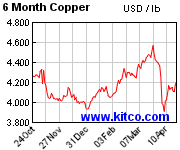
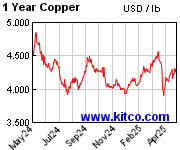
.

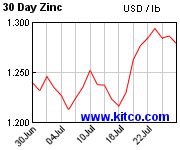
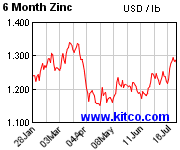
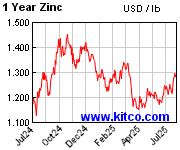
.

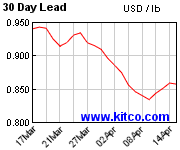
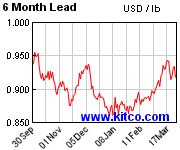
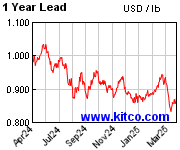
.

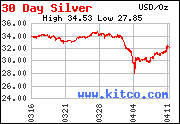
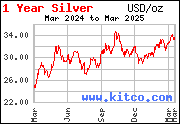
.

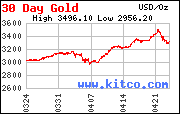
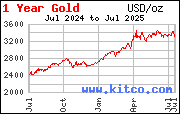
.
.




.




.




.



.



.
- Comodoro
- Mensajes: 980
- Registrado: Jue May 06, 2010 8:24 am
- Ubicación: LIMA
Re: 11/11/13 Markets abiertos, banca cerrada por Veteran's D
CURRENCIES9:40 PM EST 11/10/2013
LAST(MID) CHANGE
Euro (EUR/USD) 1.3358 0.0000
Yen (USD/JPY) 99.03 -0.19
Pound (GBP/USD) 1.6014 0.0011
Australia $ (AUD/USD) 0.9382 -0.0005
Swiss Franc (USD/CHF) 0.9225 -0.0003
WSJ Dollar Index 73.43 0.02
GOVERNMENT BONDS9:00 PM EST 11/10/2013
PRICE CHG YIELD
U.S. 10 Year 0/32 2.754
German 10 Year -22/32 1.762
Japan 10 Year -4/32 0.605
FUTURES9:30 PM EST 11/10/2013
LAST CHANGE % CHG
Crude Oil 94.66 0.06 0.06%
Brent Crude 105.41 0.38 0.36%
Gold 1285.6 1.0 0.08%
Silver 21.330 0.013 0.06%
E-mini DJIA 15686 -14 -0.09%
E-mini S&P 500 1764.25 -1.75 -0.10%
LAST(MID) CHANGE
Euro (EUR/USD) 1.3358 0.0000
Yen (USD/JPY) 99.03 -0.19
Pound (GBP/USD) 1.6014 0.0011
Australia $ (AUD/USD) 0.9382 -0.0005
Swiss Franc (USD/CHF) 0.9225 -0.0003
WSJ Dollar Index 73.43 0.02
GOVERNMENT BONDS9:00 PM EST 11/10/2013
PRICE CHG YIELD
U.S. 10 Year 0/32 2.754
German 10 Year -22/32 1.762
Japan 10 Year -4/32 0.605
FUTURES9:30 PM EST 11/10/2013
LAST CHANGE % CHG
Crude Oil 94.66 0.06 0.06%
Brent Crude 105.41 0.38 0.36%
Gold 1285.6 1.0 0.08%
Silver 21.330 0.013 0.06%
E-mini DJIA 15686 -14 -0.09%
E-mini S&P 500 1764.25 -1.75 -0.10%
- admin
- Site Admin
- Mensajes: 165580
- Registrado: Mié Abr 21, 2010 9:02 pm
Re: 11/11/13 Markets abiertos, banca cerrada por Veteran's D
Copper November 10,21:39
Bid/Ask 3.2548 - 3.2556
Change +0.0033 +0.10%
Low/High 3.2515 - 3.2702
Charts
Nickel November 10,21:39
Bid/Ask 6.2731 - 6.2849
Change -0.0050 -0.08%
Low/High 6.2531 - 6.3076
Charts
Aluminum November 10,21:39
Bid/Ask 0.8019 - 0.8025
Change +0.0017 +0.21%
Low/High 0.8002 - 0.8038
Charts
Zinc November 10,21:39
Bid/Ask 0.8479 - 0.8482
Change -0.0010 -0.12%
Low/High 0.8471 - 0.8507
Charts
Lead November 10,21:39
Bid/Ask 0.9590 - 0.9610
Change -0.0020 -0.21%
Low/High 0.9588 - 0.9643
Charts
Bid/Ask 3.2548 - 3.2556
Change +0.0033 +0.10%
Low/High 3.2515 - 3.2702
Charts
Nickel November 10,21:39
Bid/Ask 6.2731 - 6.2849
Change -0.0050 -0.08%
Low/High 6.2531 - 6.3076
Charts
Aluminum November 10,21:39
Bid/Ask 0.8019 - 0.8025
Change +0.0017 +0.21%
Low/High 0.8002 - 0.8038
Charts
Zinc November 10,21:39
Bid/Ask 0.8479 - 0.8482
Change -0.0010 -0.12%
Low/High 0.8471 - 0.8507
Charts
Lead November 10,21:39
Bid/Ask 0.9590 - 0.9610
Change -0.0020 -0.21%
Low/High 0.9588 - 0.9643
Charts
- admin
- Site Admin
- Mensajes: 165580
- Registrado: Mié Abr 21, 2010 9:02 pm
Re: 11/11/13 Markets abiertos, banca cerrada por Veteran's D
Japón se ha convertido en el mercado de mayor crecimiento y de las mejores ganancias para AAPL. Este año venderán entra 11 y doce millones de iPhones in Japan.
Apple Finds Surprising Growth Market in Japan
Apple Inc. is striking gold in an unlikely place: Japan.
In the past two years, Japan has emerged as Apple's fastest-growing region, far outpacing its home market and the booming economies of Greater China and the rest of Asia. Japan is also home to Apple's biggest profit margins, and the only one of Apple's five regions where operating profit grew in the past fiscal year.
That is surprising because Japan isn't most companies' idea of a growth market. It has labored through two decades of economic malaise, and is saddled with a shrinking, aging population. Moreover, domestic firms that pride themselves on consumer electronics have kept foreign competitors at bay for decades.
The iPhone has propelled Apple's success in Japan, supported by heavy marketing and rich subsidies from telephone companies. The iPhone's cachet taps Japan's fervor for brand-name goods, similar to how Japanese shoppers once flocked to Louis Vuitton bags and Burberry scarves.
"Apple's brand is just overwhelming here," said Eiji Mori, a Tokyo-based analyst at BCN Inc. "It's not about specifications. It's not about rationale. It's about owning an iPhone."
Sales got another boost in late September when NTT DoCoMo Inc., Japan's largest wireless carrier, began offering the iPhone for the first time to its 61.8 million customers. Even before that, the iPhone was Japan's best-selling smartphone, with a 37% market share in the six months ended Sept. 30, according to Tokyo's MM Research Institute. That's comparable to the iPhone's 36% share in the U.S. in the third quarter, according to Kantar Worldpanel ComTech.
Apple's iPad also garnered more than 50% of Japan's tablet-computer market in the fiscal year ended March 2013, said MM Research.
As the last major Japanese operator to offer the iPhone, DoCoMo is aggressively discounting new models to lure users from competitors, while offering incentives to entice existing subscribers to switch from other phones.
"I had a (Sharp) Aquos feature phone, but I wanted to try out the iPhone once," said Mika Kasai, 36, as she chose an iPhone at a DoCoMo shop in Tokyo last week. Ms. Kasai considered buying a Sony Corp. smartphone, but opted for a gold iPhone 5S despite a four-week wait.
DoCoMo's entry into the market has prompted KDDI Corp. and SoftBank Corp., Japan's second- and third-largest carriers respectively, to counter with iPhone discounts of their own. All three companies now offer the standard iPhone 5S at no upfront cost to consumers.
Timothy Arcuri, a managing director at Cowen & Co., estimates that Apple will sell 11 to 12 million iPhones in Japan in 2013, roughly double from an estimated five to six million in 2012. He expects that number to grow to about 20 million iPhones next year. World-wide, he expects iPhone sales to increase 16% this year and 10% next year.
"They're going to be close to 50% market share next year" in Japan, said Mr. Arcuri.
According to Strategy Analytics, Japan was the world's fourth-largest smartphone market in the first quarter of 2013, ranking behind China, the U.S. and India. As of the end of September, there were 50.15 million smartphone subscribers in Japan, said MM Research.
Two factors in the iPhone's Japanese success are Japan's wealth and the degree to which its phone market resembles the U.S., a "postpaid" market where the phones are subsidized by carriers and sold with multiyear contracts. "The U.S. and Japan are unique in that sense," says Sanford C. Bernstein & Co. analyst Toni Sacconaghi.
In markets where most consumers pay for the handset upfront, the iPhone's big price tag damps sales.
In China, the world's largest smartphone market,Apple's newest phones, the iPhone 5C and 5S, are roughly twice as expensive than what most consumers pay for a homegrown alternative with a larger screen. Research firm Canalys said Apple ranked fifth in China's smartphone market in the most recent quarter.
Apple could get a lift if China Mobile Ltd., the country's largest carrier, starts to roll out iPhones on its network. The Wall Street Journal had reported in September that the company was preparing to ship the handsets to the operator.
In India, where about two-thirds of smartphones sell for less than $200, Apple's smartphone market share is less than 5%, according to research firm IDC. Reliance Communications Ltd., the country's number-three carrier, said this month that it will be the first operator to offer a subsidized iPhone with a two-year contract.
One unique factor in Japan is the relatively small presence of Samsung Electronics Co., the world's largest smartphone maker. Samsung ranks fourth in Japan behind Apple, Sony and Sharp Corp., in part because of a Japanese consumer bias that works against many Korean brands.
Apple also is benefiting from the struggles of Japan's electronics conglomerates. NEC Corp. pulled the plug on its smartphone business earlier this year, while Panasonic said in September that it plans to stop producing smartphones for mainstream consumers.
Apple's sales in Japan grew 27% to $13.5 billion in the fiscal year ended Sept. 28, compared with increases of 12.8% and 4.1% in China and the rest of Asia Pacific, respectively. Revenue growth was hampered by a weaker yen that diminishes sales when converted into U.S. dollars. In the preceding fiscal year, Japan outpaced the other regions with a 94% increase in sales.
Japan is also the most profitable market for Apple with operating profit margins exceeding 50%, compared with 35% in the rest of the world.
Write to Daisuke Wakabayashi at Daisuke.Wakabayashi@wsj.com and Mayumi Negishi at mayumi.negishi@wsj.com
Apple Finds Surprising Growth Market in Japan
Apple Inc. is striking gold in an unlikely place: Japan.
In the past two years, Japan has emerged as Apple's fastest-growing region, far outpacing its home market and the booming economies of Greater China and the rest of Asia. Japan is also home to Apple's biggest profit margins, and the only one of Apple's five regions where operating profit grew in the past fiscal year.
That is surprising because Japan isn't most companies' idea of a growth market. It has labored through two decades of economic malaise, and is saddled with a shrinking, aging population. Moreover, domestic firms that pride themselves on consumer electronics have kept foreign competitors at bay for decades.
The iPhone has propelled Apple's success in Japan, supported by heavy marketing and rich subsidies from telephone companies. The iPhone's cachet taps Japan's fervor for brand-name goods, similar to how Japanese shoppers once flocked to Louis Vuitton bags and Burberry scarves.
"Apple's brand is just overwhelming here," said Eiji Mori, a Tokyo-based analyst at BCN Inc. "It's not about specifications. It's not about rationale. It's about owning an iPhone."
Sales got another boost in late September when NTT DoCoMo Inc., Japan's largest wireless carrier, began offering the iPhone for the first time to its 61.8 million customers. Even before that, the iPhone was Japan's best-selling smartphone, with a 37% market share in the six months ended Sept. 30, according to Tokyo's MM Research Institute. That's comparable to the iPhone's 36% share in the U.S. in the third quarter, according to Kantar Worldpanel ComTech.
Apple's iPad also garnered more than 50% of Japan's tablet-computer market in the fiscal year ended March 2013, said MM Research.
As the last major Japanese operator to offer the iPhone, DoCoMo is aggressively discounting new models to lure users from competitors, while offering incentives to entice existing subscribers to switch from other phones.
"I had a (Sharp) Aquos feature phone, but I wanted to try out the iPhone once," said Mika Kasai, 36, as she chose an iPhone at a DoCoMo shop in Tokyo last week. Ms. Kasai considered buying a Sony Corp. smartphone, but opted for a gold iPhone 5S despite a four-week wait.
DoCoMo's entry into the market has prompted KDDI Corp. and SoftBank Corp., Japan's second- and third-largest carriers respectively, to counter with iPhone discounts of their own. All three companies now offer the standard iPhone 5S at no upfront cost to consumers.
Timothy Arcuri, a managing director at Cowen & Co., estimates that Apple will sell 11 to 12 million iPhones in Japan in 2013, roughly double from an estimated five to six million in 2012. He expects that number to grow to about 20 million iPhones next year. World-wide, he expects iPhone sales to increase 16% this year and 10% next year.
"They're going to be close to 50% market share next year" in Japan, said Mr. Arcuri.
According to Strategy Analytics, Japan was the world's fourth-largest smartphone market in the first quarter of 2013, ranking behind China, the U.S. and India. As of the end of September, there were 50.15 million smartphone subscribers in Japan, said MM Research.
Two factors in the iPhone's Japanese success are Japan's wealth and the degree to which its phone market resembles the U.S., a "postpaid" market where the phones are subsidized by carriers and sold with multiyear contracts. "The U.S. and Japan are unique in that sense," says Sanford C. Bernstein & Co. analyst Toni Sacconaghi.
In markets where most consumers pay for the handset upfront, the iPhone's big price tag damps sales.
In China, the world's largest smartphone market,Apple's newest phones, the iPhone 5C and 5S, are roughly twice as expensive than what most consumers pay for a homegrown alternative with a larger screen. Research firm Canalys said Apple ranked fifth in China's smartphone market in the most recent quarter.
Apple could get a lift if China Mobile Ltd., the country's largest carrier, starts to roll out iPhones on its network. The Wall Street Journal had reported in September that the company was preparing to ship the handsets to the operator.
In India, where about two-thirds of smartphones sell for less than $200, Apple's smartphone market share is less than 5%, according to research firm IDC. Reliance Communications Ltd., the country's number-three carrier, said this month that it will be the first operator to offer a subsidized iPhone with a two-year contract.
One unique factor in Japan is the relatively small presence of Samsung Electronics Co., the world's largest smartphone maker. Samsung ranks fourth in Japan behind Apple, Sony and Sharp Corp., in part because of a Japanese consumer bias that works against many Korean brands.
Apple also is benefiting from the struggles of Japan's electronics conglomerates. NEC Corp. pulled the plug on its smartphone business earlier this year, while Panasonic said in September that it plans to stop producing smartphones for mainstream consumers.
Apple's sales in Japan grew 27% to $13.5 billion in the fiscal year ended Sept. 28, compared with increases of 12.8% and 4.1% in China and the rest of Asia Pacific, respectively. Revenue growth was hampered by a weaker yen that diminishes sales when converted into U.S. dollars. In the preceding fiscal year, Japan outpaced the other regions with a 94% increase in sales.
Japan is also the most profitable market for Apple with operating profit margins exceeding 50%, compared with 35% in the rest of the world.
Write to Daisuke Wakabayashi at Daisuke.Wakabayashi@wsj.com and Mayumi Negishi at mayumi.negishi@wsj.com
- admin
- Site Admin
- Mensajes: 165580
- Registrado: Mié Abr 21, 2010 9:02 pm
Re: 11/11/13 Markets abiertos, banca cerrada por Veteran's D
Yen up 98.96
El Hang Seng +0.06%, Korea +0.05%
Euro down 1.3361
Los futures del Dow Jones 20 puntos a la baja.
Oil up 94.67
Au up 1.286
Yields sin cambio 2.75%
El Hang Seng +0.06%, Korea +0.05%
Euro down 1.3361
Los futures del Dow Jones 20 puntos a la baja.
Oil up 94.67
Au up 1.286
Yields sin cambio 2.75%
- admin
- Site Admin
- Mensajes: 165580
- Registrado: Mié Abr 21, 2010 9:02 pm
Re: 11/11/13 Markets abiertos, banca cerrada por Veteran's D
Australia -0.42%, el Shanghai C. -0.18%, el Nikkei +0.9%
- admin
- Site Admin
- Mensajes: 165580
- Registrado: Mié Abr 21, 2010 9:02 pm
Re: 11/11/13 Markets abiertos, banca cerrada por Veteran's D
CURRENCIES6:52 AM EST 11/11/2013
LAST(MID) CHANGE
Euro (EUR/USD) 1.3397 0.0039
Yen (USD/JPY) 99.16 -0.06
Pound (GBP/USD) 1.5992 -0.0011
Australia $ (AUD/USD) 0.9362 -0.0025
Swiss Franc (USD/CHF) 0.9200 -0.0028
WSJ Dollar Index 73.39 -0.02
GOVERNMENT BONDS6:52 AM EST 11/11/2013
PRICE CHG YIELD
U.S. 10 Year 2/32 2.747
German 10 Year 5/32 1.743
Japan 10 Year 1/32 0.590
FUTURES6:42 AM EST 11/11/2013
LAST CHANGE % CHG
Crude Oil 94.32 -0.28 -0.30%
Brent Crude 105.45 0.42 0.40%
Gold 1286.1 1.5 0.12%
Silver 21.420 0.103 0.48%
E-mini DJIA 15715 15 0.10%
E-mini S&P 500 1766.75 0.75 0.04%
LAST(MID) CHANGE
Euro (EUR/USD) 1.3397 0.0039
Yen (USD/JPY) 99.16 -0.06
Pound (GBP/USD) 1.5992 -0.0011
Australia $ (AUD/USD) 0.9362 -0.0025
Swiss Franc (USD/CHF) 0.9200 -0.0028
WSJ Dollar Index 73.39 -0.02
GOVERNMENT BONDS6:52 AM EST 11/11/2013
PRICE CHG YIELD
U.S. 10 Year 2/32 2.747
German 10 Year 5/32 1.743
Japan 10 Year 1/32 0.590
FUTURES6:42 AM EST 11/11/2013
LAST CHANGE % CHG
Crude Oil 94.32 -0.28 -0.30%
Brent Crude 105.45 0.42 0.40%
Gold 1286.1 1.5 0.12%
Silver 21.420 0.103 0.48%
E-mini DJIA 15715 15 0.10%
E-mini S&P 500 1766.75 0.75 0.04%
- admin
- Site Admin
- Mensajes: 165580
- Registrado: Mié Abr 21, 2010 9:02 pm
Re: 11/11/13 Markets abiertos, banca cerrada por Veteran's D
Apple está trabajando en iPhone con pantalla curva, sensores mejorados: reporte
lunes 11 de noviembre de 2013 05:49 GYT Imprimir [-] Texto [+]
(Reuters) - Apple Inc está desarrollando nuevos diseños del iPhone, incluyendo pantallas más grandes con vidrio curvo y sensores mejorados que pueden detectar diferentes niveles de presión, reportó Bloomberg el domingo, citando a una fuente no identificada familiarizada con los planes.
Con pantallas de 4,7 pulgadas (11,9 centímetros) y 5,5 pulgadas (14 centímetros), los dos nuevos modelos serían los mayores iPhones de Apple, dijo la persona a Bloomberg.
Los nuevos teléfonos móviles están todavía en desarrollo y los planes no se han completado, dijo Bloomberg citando a la persona, añadiendo que Apple probablemente los pondría en venta en el tercer trimestre del próximo año.
Natalie Kerris, una portavoz de la compañía de tecnología con sede en Cupertino, California, no quiso hacer comentarios.
(Reporte de Dhanya Skariachan. Editado en español por Carlos Aliaga)
lunes 11 de noviembre de 2013 05:49 GYT Imprimir [-] Texto [+]
(Reuters) - Apple Inc está desarrollando nuevos diseños del iPhone, incluyendo pantallas más grandes con vidrio curvo y sensores mejorados que pueden detectar diferentes niveles de presión, reportó Bloomberg el domingo, citando a una fuente no identificada familiarizada con los planes.
Con pantallas de 4,7 pulgadas (11,9 centímetros) y 5,5 pulgadas (14 centímetros), los dos nuevos modelos serían los mayores iPhones de Apple, dijo la persona a Bloomberg.
Los nuevos teléfonos móviles están todavía en desarrollo y los planes no se han completado, dijo Bloomberg citando a la persona, añadiendo que Apple probablemente los pondría en venta en el tercer trimestre del próximo año.
Natalie Kerris, una portavoz de la compañía de tecnología con sede en Cupertino, California, no quiso hacer comentarios.
(Reporte de Dhanya Skariachan. Editado en español por Carlos Aliaga)
- admin
- Site Admin
- Mensajes: 165580
- Registrado: Mié Abr 21, 2010 9:02 pm
Re: 11/11/13 Markets abiertos, banca cerrada por Veteran's D
Perú utiliza el cambio climático para atraer nuevos turistas a menguante glaciar
domingo 10 de noviembre de 2013 11:08 GYT Imprimir [-] Texto [+]
Por Mitra Taj
HUARAZ, Perú (Reuters) - En su mejor momento, el glaciar Pastoruri, en el centro de Perú, era visitado por multitudes de turistas que, agrupados en autobuses de dos pisos, eran llevados a sus cumbres andinas de más de 5.000 metros de altura para esquiar, jugar con la nieve o escalar sus vertiginosas cimas.
Era tal el brillo de su hielo y la nieve que el uso de lentes protectores era obligatorio.
Pero en menos de 20 años, incluyendo al menos 10 de los años más calientes de los registros históricos, el Pastoruri se ha encogido a la mitad, y ahora se extiende apenas sobre unos 900 metros cuadrados.
El deshielo ha dejado al descubierto rocas negras, dos pequeños lagos en su falda aumentaron tanto que ahora es solo uno y las autoridades debieron prohibir escalar la inestable formación.
"No queda mucho de nuestra gran atracción turística", dijo el guía local Valerio Huerta. "Ahora los turistas se van totalmente decepcionados", lamentó.
El menor número de visitantes del Pastoruri -34.000 el año pasado frente a los 100.000 que se estima lo visitaban por año en la década de 1990- ha erosionado también las ganancias turísticas que son el sustento de miles de pobladores de la Cordillera Blanca, el conjunto de montañas nevadas más popular de Perú.
Sin embargo, sus residentes intentan actualmente atraer nuevos turistas para que conozcan el Pastoruri antes de que desaparezca para siempre, lo que podría ocurrir en una década.
En lugar de promocionar al Pastoruri como el oasis invernal en los Andes peruanos que solía ser, el glaciar ha sido rebautizado como un lugar para palpar de cerca el cambio climático.
"La ruta del cambio climático", que será lanzada oficialmente en marzo, es la más reciente respuesta a las crecientes temperaturas, que en las últimas décadas han sido responsables de acabar con entre un 30 y un 50 por ciento de los glaciares de los Andes.
Los peruanos han tratado de aislar el hielo con aserrín para retardar su derretimiento, y han pintado de blanco las rocas ya expuestas para que reflejen la luz solar.
Estos experimentos han aminorado levemente el retroceso de algunos glaciares, pero no pueden hacer que regresen los bloques de hielo que solían cubrir el Pastoruri, dijo Selwyn Valverde del Parque Nacional del Huascarán, que alberga el Pastoruri y otros 700 glaciares peruanos que inexorablemente se van achicando.
"En este momento ya es irreversible", afirmó Valverde, quien agregó que, técnicamente, el Pastoruri ya no es considerado un glaciar porque no genera hielo en el invierno para liberarlo en el verano.
"Ahora sólo hay pérdida, pérdida, pérdida (de hielo). Ya no hay acumulación," explicó.
En Perú se concentra el 70 por ciento de los llamados glaciares tropicales -formaciones particularmente sensibles a un alza en las temperaturas- del planeta.
Los que apoyan esta nueva ruta dicen que el Pastoruri, que se ubica a una hora de vuelo de Lima hasta la capital regional Huaraz y luego otra hora en auto para llegar a sus faldas, tiene una ubicación perfecta para mostrarle al mundo el impacto del calentamiento que algún día será mucho más amplio.
¿"TRISTE" DE VER COMO DESAPARECE EL GLACIAR?
En "La ruta del cambio climático", los visitantes atraviesan pantanos cubiertos de arcilla roja a medida que escalan una montaña que una vez estuvo cubierta de hielo.
"Huelan el agua" dijo Valverde, llevando unas gotas en su mano. "¿Puedes oler el hierro?", preguntó.
Las rocas de la montaña que estuvieron cubiertas por años ahora desprenden minerales a medida que el hielo se derrite, dejando fluir agua no apta para el consumo dado que contiene altos niveles de metales pesados como cadmio y hierro, detalló.
Las rocas recién expuestas también han revelado especies marinas fosilizadas que posiblemente vieron la luz del día por última vez antes del inicio de la última era de hielo, hace más de 100.000 años, dijo Valverde.
El Pastoruri aún es un impresionante pedazo de hielo, pero no está claro si los turistas, incluso aquellos con inclinación científica, vendrán a observar su lenta desaparición.
En Huaraz, Korbinian Munster, un turista alemán, dijo que tomó la recomendación de su libro guía y optó por escalar las rocas que ya no tienen hielo en lugar de pasar el día en el Pastoruri.
Ver el cambio climático de cerca no le llamó la atención.
"Prefiero visitar cosas lindas", dijo Munster. "Ver algo que alguna vez fue un glaciar suena bastante aburrido y triste", agregó.
El Pastoruri no es el único lugar golpeado por el cambio climático. A medida que temperaturas globales más cálidas moldean los ecosistemas, incrementan la frecuencia de climas extremos y afectan las costas, el mapa de los principales lugares turísticos está siendo reescrito lentamente.
Corrientes cada vez más calientes están intensificando la desaparición de los corales en la Gran Barrera de Coral de Australia y las frecuentes inundaciones en Venecia podrían limitar el flujo de visitantes.
Pero para algunos, lo pasajero también tiene su encanto.
"Dicen que se está desapareciendo Pastoruri", dijo el turista Santiago Florián mientras tomaba una bocanada de aire subiendo hacia el Pastoruri. "Quiero poder decir que estuve aquí antes de que ya no esté", agregó.
MENGUANTE TURISMO, MENOS INGRESOS
Mientras el agua se desliza por los bordes del Pastoruri, vendedores locales también ven como disminuye el movimiento entre sus puestos de comida y alquiler de abrigos.
"Antes vendía 30 o 40 platos de comida por día", dijo Nelisia Tuya mientras revolvía una sopa de yuca y cordero. "Ahora son dos o tres, cinco o seis como mucho. Y eso que somos menos los que estamos vendiendo", afirmó.
Otros vendedores -al igual que Tuya pobladores de la cercana comunidad quechuahablante Catac- han dejado el Pastoruri en busca de trabajo en pueblos y ciudades.
No hay cifras oficiales disponibles sobre los menguantes ingresos debido al retroceso del glaciar. Pero Marcos Pastor, de la agencia estatal SERNANP, encargada de proteger los lugares naturales de Perú, dijo que cerca de una cuarta parte de las personas que viven en los alrededores de la Cordillera Blanca dependen del turismo de glaciares.
La amenaza al turismo podría parecer trivial en comparación con otros potenciales efectos por el cambio climático.
Los crecientes lagos alimentados por los glaciares derretidos amenazan con arrasar pueblos enteros si se salen de su cauce, los minerales que entran en el suministro hídrico representan un riesgo para la salud y la populosa costa desértica de Perú eventualmente sufriría de un menor abastecimiento de agua.
Y el turismo es una importante fuente de dinero para cientos de pueblos en los Andes peruanos, donde hay relativamente menos empleos y puede ser difícil tener acceso a los beneficios del boom económico del país rico en recursos naturales como el cobre y el oro.
"El turismo es una de las pocas actividades económicas en Perú que distribuye el dinero en forma más directa entre los locales", dijo Pastor.
domingo 10 de noviembre de 2013 11:08 GYT Imprimir [-] Texto [+]
Por Mitra Taj
HUARAZ, Perú (Reuters) - En su mejor momento, el glaciar Pastoruri, en el centro de Perú, era visitado por multitudes de turistas que, agrupados en autobuses de dos pisos, eran llevados a sus cumbres andinas de más de 5.000 metros de altura para esquiar, jugar con la nieve o escalar sus vertiginosas cimas.
Era tal el brillo de su hielo y la nieve que el uso de lentes protectores era obligatorio.
Pero en menos de 20 años, incluyendo al menos 10 de los años más calientes de los registros históricos, el Pastoruri se ha encogido a la mitad, y ahora se extiende apenas sobre unos 900 metros cuadrados.
El deshielo ha dejado al descubierto rocas negras, dos pequeños lagos en su falda aumentaron tanto que ahora es solo uno y las autoridades debieron prohibir escalar la inestable formación.
"No queda mucho de nuestra gran atracción turística", dijo el guía local Valerio Huerta. "Ahora los turistas se van totalmente decepcionados", lamentó.
El menor número de visitantes del Pastoruri -34.000 el año pasado frente a los 100.000 que se estima lo visitaban por año en la década de 1990- ha erosionado también las ganancias turísticas que son el sustento de miles de pobladores de la Cordillera Blanca, el conjunto de montañas nevadas más popular de Perú.
Sin embargo, sus residentes intentan actualmente atraer nuevos turistas para que conozcan el Pastoruri antes de que desaparezca para siempre, lo que podría ocurrir en una década.
En lugar de promocionar al Pastoruri como el oasis invernal en los Andes peruanos que solía ser, el glaciar ha sido rebautizado como un lugar para palpar de cerca el cambio climático.
"La ruta del cambio climático", que será lanzada oficialmente en marzo, es la más reciente respuesta a las crecientes temperaturas, que en las últimas décadas han sido responsables de acabar con entre un 30 y un 50 por ciento de los glaciares de los Andes.
Los peruanos han tratado de aislar el hielo con aserrín para retardar su derretimiento, y han pintado de blanco las rocas ya expuestas para que reflejen la luz solar.
Estos experimentos han aminorado levemente el retroceso de algunos glaciares, pero no pueden hacer que regresen los bloques de hielo que solían cubrir el Pastoruri, dijo Selwyn Valverde del Parque Nacional del Huascarán, que alberga el Pastoruri y otros 700 glaciares peruanos que inexorablemente se van achicando.
"En este momento ya es irreversible", afirmó Valverde, quien agregó que, técnicamente, el Pastoruri ya no es considerado un glaciar porque no genera hielo en el invierno para liberarlo en el verano.
"Ahora sólo hay pérdida, pérdida, pérdida (de hielo). Ya no hay acumulación," explicó.
En Perú se concentra el 70 por ciento de los llamados glaciares tropicales -formaciones particularmente sensibles a un alza en las temperaturas- del planeta.
Los que apoyan esta nueva ruta dicen que el Pastoruri, que se ubica a una hora de vuelo de Lima hasta la capital regional Huaraz y luego otra hora en auto para llegar a sus faldas, tiene una ubicación perfecta para mostrarle al mundo el impacto del calentamiento que algún día será mucho más amplio.
¿"TRISTE" DE VER COMO DESAPARECE EL GLACIAR?
En "La ruta del cambio climático", los visitantes atraviesan pantanos cubiertos de arcilla roja a medida que escalan una montaña que una vez estuvo cubierta de hielo.
"Huelan el agua" dijo Valverde, llevando unas gotas en su mano. "¿Puedes oler el hierro?", preguntó.
Las rocas de la montaña que estuvieron cubiertas por años ahora desprenden minerales a medida que el hielo se derrite, dejando fluir agua no apta para el consumo dado que contiene altos niveles de metales pesados como cadmio y hierro, detalló.
Las rocas recién expuestas también han revelado especies marinas fosilizadas que posiblemente vieron la luz del día por última vez antes del inicio de la última era de hielo, hace más de 100.000 años, dijo Valverde.
El Pastoruri aún es un impresionante pedazo de hielo, pero no está claro si los turistas, incluso aquellos con inclinación científica, vendrán a observar su lenta desaparición.
En Huaraz, Korbinian Munster, un turista alemán, dijo que tomó la recomendación de su libro guía y optó por escalar las rocas que ya no tienen hielo en lugar de pasar el día en el Pastoruri.
Ver el cambio climático de cerca no le llamó la atención.
"Prefiero visitar cosas lindas", dijo Munster. "Ver algo que alguna vez fue un glaciar suena bastante aburrido y triste", agregó.
El Pastoruri no es el único lugar golpeado por el cambio climático. A medida que temperaturas globales más cálidas moldean los ecosistemas, incrementan la frecuencia de climas extremos y afectan las costas, el mapa de los principales lugares turísticos está siendo reescrito lentamente.
Corrientes cada vez más calientes están intensificando la desaparición de los corales en la Gran Barrera de Coral de Australia y las frecuentes inundaciones en Venecia podrían limitar el flujo de visitantes.
Pero para algunos, lo pasajero también tiene su encanto.
"Dicen que se está desapareciendo Pastoruri", dijo el turista Santiago Florián mientras tomaba una bocanada de aire subiendo hacia el Pastoruri. "Quiero poder decir que estuve aquí antes de que ya no esté", agregó.
MENGUANTE TURISMO, MENOS INGRESOS
Mientras el agua se desliza por los bordes del Pastoruri, vendedores locales también ven como disminuye el movimiento entre sus puestos de comida y alquiler de abrigos.
"Antes vendía 30 o 40 platos de comida por día", dijo Nelisia Tuya mientras revolvía una sopa de yuca y cordero. "Ahora son dos o tres, cinco o seis como mucho. Y eso que somos menos los que estamos vendiendo", afirmó.
Otros vendedores -al igual que Tuya pobladores de la cercana comunidad quechuahablante Catac- han dejado el Pastoruri en busca de trabajo en pueblos y ciudades.
No hay cifras oficiales disponibles sobre los menguantes ingresos debido al retroceso del glaciar. Pero Marcos Pastor, de la agencia estatal SERNANP, encargada de proteger los lugares naturales de Perú, dijo que cerca de una cuarta parte de las personas que viven en los alrededores de la Cordillera Blanca dependen del turismo de glaciares.
La amenaza al turismo podría parecer trivial en comparación con otros potenciales efectos por el cambio climático.
Los crecientes lagos alimentados por los glaciares derretidos amenazan con arrasar pueblos enteros si se salen de su cauce, los minerales que entran en el suministro hídrico representan un riesgo para la salud y la populosa costa desértica de Perú eventualmente sufriría de un menor abastecimiento de agua.
Y el turismo es una importante fuente de dinero para cientos de pueblos en los Andes peruanos, donde hay relativamente menos empleos y puede ser difícil tener acceso a los beneficios del boom económico del país rico en recursos naturales como el cobre y el oro.
"El turismo es una de las pocas actividades económicas en Perú que distribuye el dinero en forma más directa entre los locales", dijo Pastor.
- admin
- Site Admin
- Mensajes: 165580
- Registrado: Mié Abr 21, 2010 9:02 pm
¿Quién está conectado?
Usuarios navegando por este Foro: No hay usuarios registrados visitando el Foro y 33 invitados
